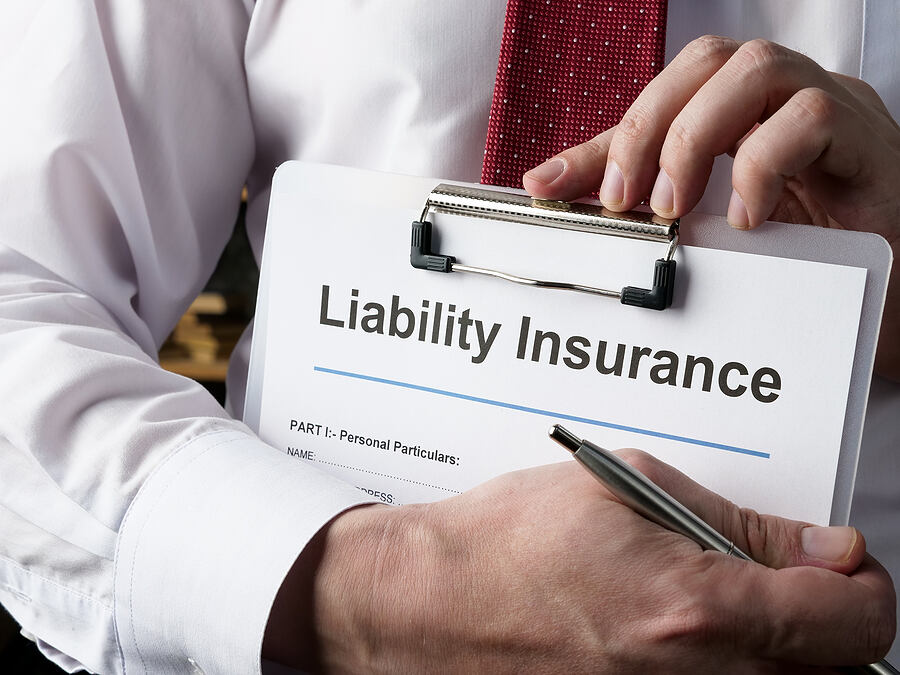If you’re legally responsible for causing harm to someone else, whether it’s physical injuries or property damage, having liability insurance can save you from a potential financial disaster.
Liability policies take several forms, but the most widely used is part of your car insurance. Personal liability policies are also bundled with homeowner’s insurance to provide coverage when someone hurts themselves while on your property.
In general, this form of insurance provides peace of mind that you have a measure of financial protection if you’re ever responsible for someone else’s damages.
How Does Liability Coverage Work?
Accidents are unintentional and unexpected by their very nature, but they happen, and it may even be your fault.
Someone is liable in many circumstances, such as:
- They enter a friend’s driveway too sharply and knock down their mailbox.
- They get distracted while turning on the air conditioning and rear-end the vehicle in front of you.
- The mail carrier slips on a patch of ice on a walkway and gets injured.
- A dog escapes through a hole in the fence and bites a nearby pedestrian.
- They failed to remove a hazardous tree on their property, and it collapses, damaging your neighbor’s house on the way down.
In any of these examples, the harmed person could file for damages under an insurance policy, whether car insurance, homeowners’ insurance, or others. This is called a third-party claim. The insurer will investigate what happened, evaluate the claim’s merits, and then pay compensation on the insured’s behalf.
All liability policies come with a specific limit based on the tier you chose for the plan, which means your insurance company would pay a maximum for any individual incident. If your coverage isn’t enough for the damages you’ve caused, the claimant may go after you directly, usually in civil court.
Even if the claim does make it to the stage of a lawsuit, you’re still entitled to the financial protection of your liability policy. If the court awards a judgment that goes over the plan’s limits, you would only be responsible for paying the difference.
How Does Liability Insurance Protect You Financially?
Without liability insurance, the out-of-pocket costs of being held responsible for someone else’s damages could be financially devastating.
Even a relatively minor incident can be liable for thousands of dollars in medical bills, repairs, and other expenses. In more challenging situations, where you end up causing significant property damage or injuries, the money involved can be astronomical and may even reach the six figures. The judgment award can potentially seize your home, vehicle, or life savings if you go to court. While this is a nightmarish scenario, it’s also something that can and does happen.
Some of the basic guidelines for protecting your finances with liability insurance include:
- Consider getting more than the minimum policy for your car insurance: Most states, including Texas, have liability standards to meet to drive legally, but is the minimum enough for your needs? Lower limits will come with lower premium costs, but they can leave you more financially exposed if you cause an accident. Once the funds in your policy get exhausted, you may get hit with high out-of-pocket costs.
- The more wealth you have, the more liability insurance you’ll need to protect your financial wellbeing: As your net worth grows, you may wish to increase your liability coverage. There’s also the option of getting “personal umbrella liability insurance, ” like a backup policy that provides an extra layer of protection. The umbrella policy only kicks in when your primary insurance plan has been exhausted, but you still owe more damages.
- You’re likely to need more coverage if you’re taking on more liability risks: For example, when adding a teenage driver to your car insurance policy, you should consider that they’re more likely to crash.
What Does a Personal Liability Policy Cover?
Personal liability policies generally offer two types of coverage: bodily injury liability and property damage liability.
- Bodily Injury Liability: The insurer pays compensation for the damages from causing someone a physical injury, like medical expenses and lost wages from not being able to work. The injured person can also claim intangible losses like pain and suffering. If the incident led to someone’s death, the deceased family members could file for funeral and burial expenses, plus the emotional distress of losing a loved one.
- Property Damage Liability: This policy covers compensation for harming someone’s personal property, like their home, vehicle, fence, or anything else. The damages in this scenario would include the cost of either repairing or replacing the claimant’s property, including parts and labor. A property damage claim can also pay for lost income from the incident, among other losses.
Most liability insurance policies come as a three-piece package, such as 30/60/25, which is the minimum liability standard for drivers in Texas.
The funds break down as:
- Up to $30,000 to compensate for the injuries caused to just one person
- Up to $60,000 to compensate for the injuries of more than one person in the same incident
- Up to $30,000 to compensate for property damage
What does liability insurance cover if you’re not at fault?
A liability insurance policy only comes into effect to pay for the other person’s damages if you were at fault for causing them. If you weren’t responsible, then there’s no liability. The policy also can’t pay for your damages, so make sure you have adequate coverage for another kind of insurance.
Homeowners should generally have insurance protection for damage to their homes and loss or theft of valuable possessions. In the case of car insurance, drivers can purchase collision coverage, underinsured motorist coverage, or personal injury protection, all of which provide compensation for their medical expenses, lost wages, and other associated costs of being in an accident.


